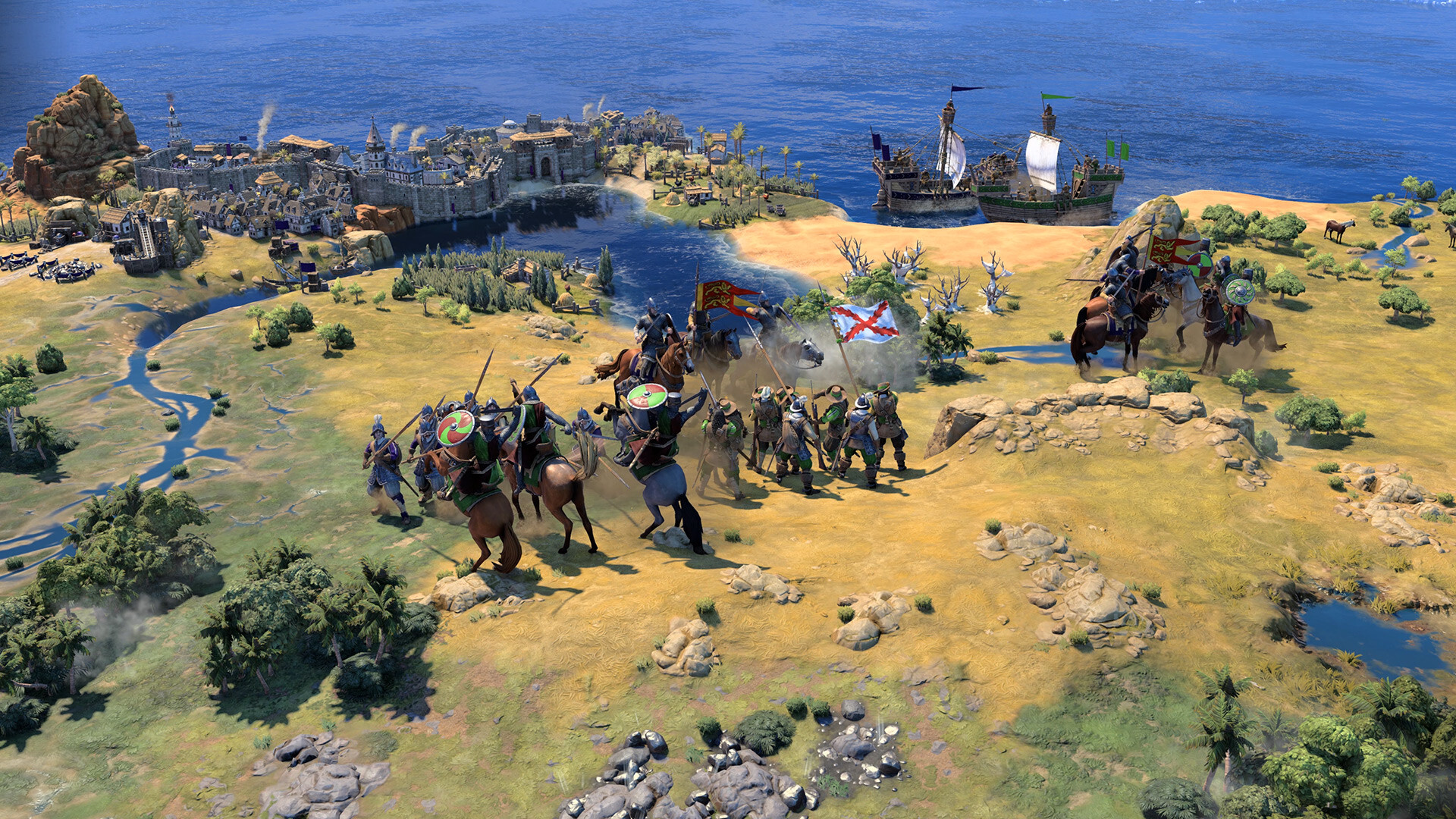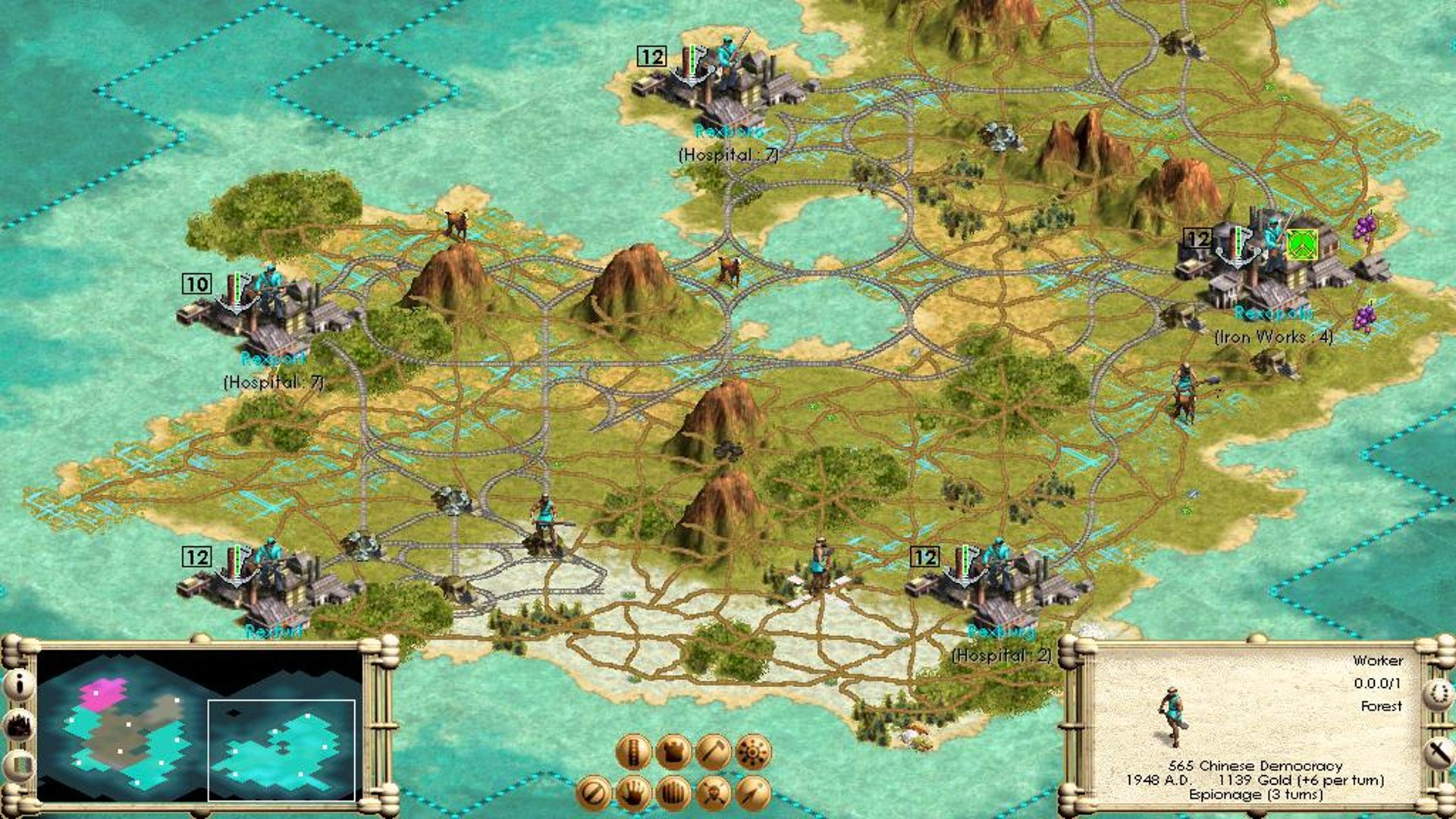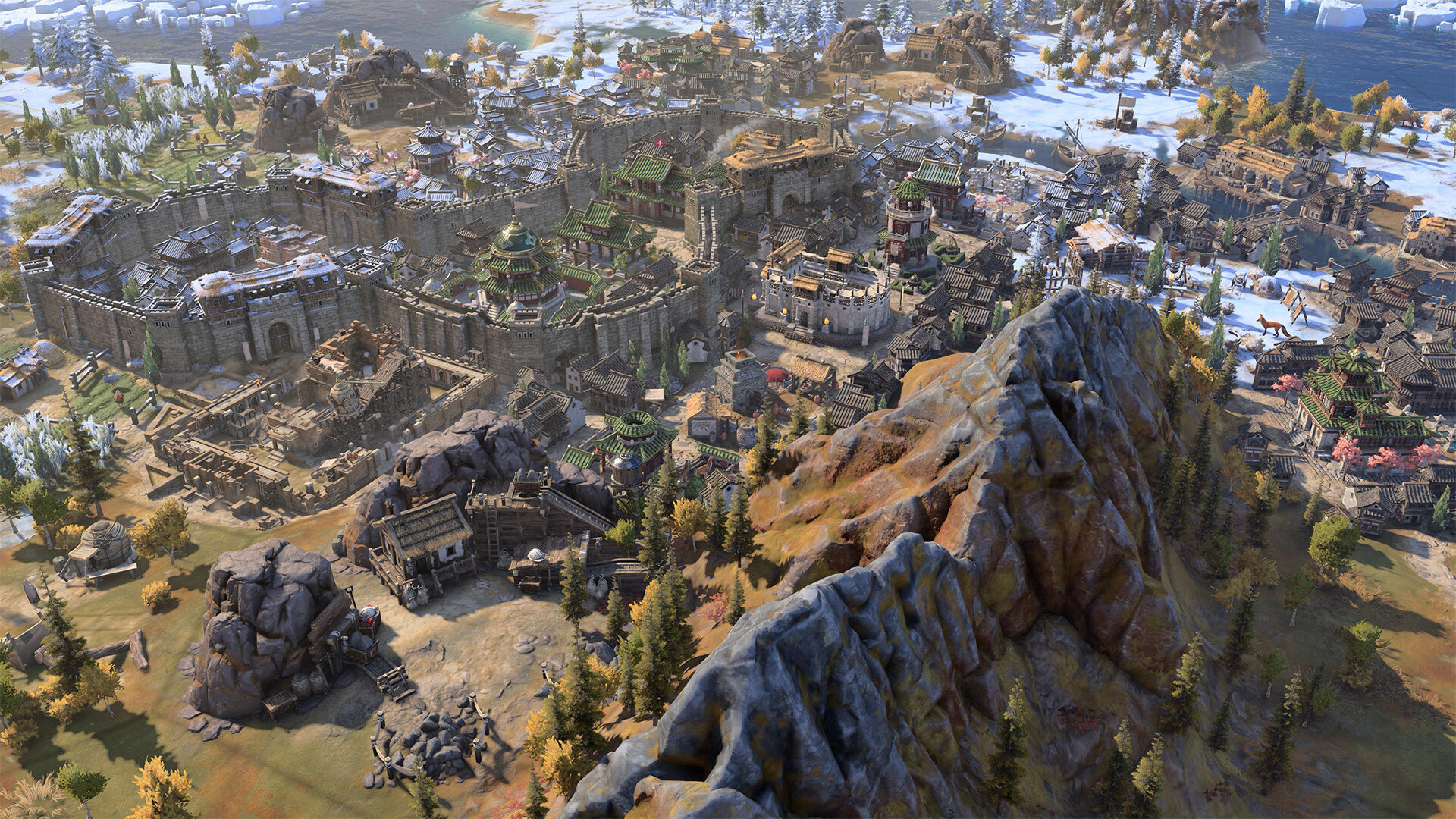"Everybody's in competition with Civ": Lead Civilization 5 composer has been in the "volatile" gaming industry for over 20 years and thinks new IP is only getting harder to make
Interview | Michael Curran is Civilization's unofficial virtuoso

Flutes, clarinets, and a delicate piccolo flutter like birds trying to find each other across a mountaintop. The trumpet blinks out another proud melody as violins, dark and heavy, cluster like ivy. It's beautiful, dignified American music, but it doesn't signal the lightning bolt from God I've started expecting to smite my strange country – it's a suggestion of alternate history from the Civilization 5 soundtrack, courtesy of lead composer Michael Curran.
Without Curran's contributions, the turn-based strategy Civilization games would not be able to offer these kinds of irresistible daydreams – visions of divine justice, in my case, or just the feeling that you can change the world. It was kismet that Curran got the opportunity to work on Civ, too. He was doing sound design in theater when a friend began working at Firaxis, giving him the opportunity to do a three-month contract for Civilization 3: Conquests – the game's second expansion, released in 2003. After his contract expired, Curran was hired.
"That's how I got in," Curran says. "I knew a guy."

Rome wasn't built in a day
"The company culture was great," Curran says about his early days at Firaxis. "We were an independent studio. I think I was the 40th employee." When 2k Games bought the Civ developer and its IP, Curran says the tone of working there "changed a bit," but he was soon able to move to a lead position, allowing him to write "a lot" of music for Civilization 5 and work on its sound design.
When composing for turn-based strategy games, Curran recognizes that "music kind of acts as background," but also that "there's a lot of music required for these games, because people play for hours and hours and hours, game after game."
Ultimately, the goal is to feature enough musical variation that a player doesn't decide to cut the sound and listen to bulldozers outside their window instead. Civilization 5 – which some fans still consider to have one of the greatest soundtracks in the 34-year old franchise's history – uses live orchestra to help captivate their attention. In fact, Civilization 5 is the first Firaxis game to use live orchestra in its soundtrack, a mission Curran spearheaded.
Though Curran "didn't really expect" 2k to allow for a live orchestra, the publisher's AAA budget and experience in recording live music helped make it happen. Now, live recordings are industry standard across both major and indie studios. That musical shift was largely independent of Civilization 5, but the series has continued to dominate the realm of turn-based strategy. "Everybody's in competition with Civ," Curran says.
Sign up to the GamesRadar+ Newsletter
Weekly digests, tales from the communities you love, and more
"Civilization has such a fan base," he adds. "There's forums, websites, Civ fanatics, and it's amazing what they will come up with. They're very smart. And I guess they have a lot of time on their hands, because they find out things that you're like… 'God, how do you have time to know all this?'"
Curran eventually left developer Firaxis to join former employees' studio Oxide Games, where he acted as audio director and composed the music for 4x title Ara: History Untold before being impacted by layoffs under Xbox.

After the fall
Curran knows firsthand that, like any empire, the gaming industry is "volatile."
"I think more now than it has been," he says. "I've been in it for like, 23 years, and there are layoffs. They happen pretty frequently. I've only been with three companies since I started in video games, so I consider myself fortunate."
"It seems like these big budget games are getting harder and harder to make," Curran continues, "especially with new IP." Even Civilization 7, which launched recently to middling reviews from fans, experienced the knife-twist of the unfriendly, contemporary gaming industry. (We appreciated the game's innovations in our own Civilization 7 review).
Curran acknowledges Ara's lackluster debut, too, though he hopes the 2024 title will find its own group of passionate fans eventually. Either way, Curran stands by the fact that he tried making its music as revolutionary as possible.
"We wanted to be about the player," Curran says about composing for Ara, "so we made themes that supported the player's experience." The physicality of a player's experience during a 4x, turn-based strategy game is relatively limited – instead of doing backflips or punching goddesses in the head, you're clicking, zooming in and out, and so on. But that didn't stop Curran from making Ara's music dynamic; as in-game societies inevitably changed, so did their sounds. Different music plays if you're "doing really well," locked in a bitter war, or enjoying peace.
"The thing that made it unique," Curran says, is how "we used the game notification system to apply weights to a particular theme. In turn-based strategy games, you end a turn or start a new turn, and all kinds of things pop up as notifications that [something] happened" Which of the game's 11 themes play rely on what notifications you receive, for example, and which of 12 music variations you hear depend on what period of history you're in.
"I think we made, for the genre, pretty huge advances," Curran says about Ara. But that's always his goal in composing for turn-based strategy. "Every time I do a new one of these games, I'm like, 'Well, what can I do that I haven't done before?'"
This self-assured need to grow – to conquer! – seems to call all the way back to Curran's work on Civ 5, 15 years ago. "We had a lot of faith in what we were doing," Curran recalls. "There was always a waiting audience for the next Civilization."
Civilization 7 launched with 3 new Ages, but data miners think we could be getting a fourth.

Ashley is a Senior Writer at GamesRadar+. She's been a staff writer at Kotaku and Inverse, too, and she's written freelance pieces about horror and women in games for sites like Rolling Stone, Vulture, IGN, and Polygon. When she's not covering gaming news, she's usually working on expanding her doll collection while watching Saw movies one through 11.
You must confirm your public display name before commenting
Please logout and then login again, you will then be prompted to enter your display name.


